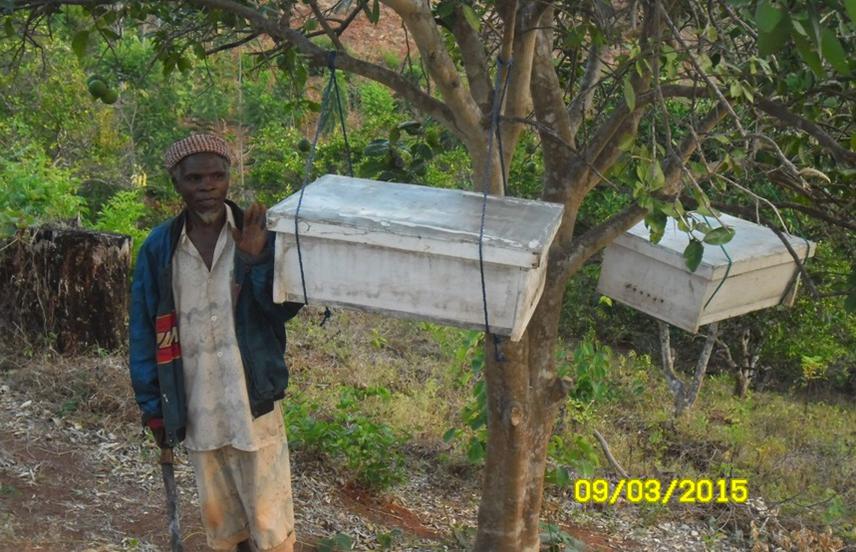Iddi Mwanyoka
Other projects
2 Dec 2015
Scaling-Up Modern Bee-Keeping as an Innovative Mechanism for Biodiversity Conservation and Community Livelihoods in the East Usambara Mountains
21 Feb 2017
Sustaining Modern Beekeeping as a Mechanism for Biodiversity Conservation and Community Livelihoods Improvement in the East Usambara Mountains
To promote modern beekeeping as a way to improve biodiversity conservation and improve community livelihoods in the East Usambara Mountains, Tanzania.

The project will be implemented in the East Usambara Mountains in Muheza District, Tanga region involving two villages of Kimbo and Shembekeza which are among 22 villages surrounding Amani Nature Reserve which is a centre for biological diversity. The population of Kimbo and Shembekeza is estimated to be 697 and 1110 people respectively. The idea to implement this project emanates from the fact that the East Usambara Mountains is a biodiversity “hotspots” with local and global conservation importance and there exist great potential for beekeeping which is increasingly recognized as a potential avenue towards sustainable community livelihood improvement. Apparently, a well-managed modern beehive can produce up to 40 liters of honey per month earning a farmer around 400,000 Tanzania shillings equivalent to $250 monthly. Also the project builds on the National Beekeeping Policy (1998) whose one of its the objectives is to promote the improved biodiversity, increased employment and foreign exchange earnings through sustainable bee products-based industrial development and trade and takes advantage of the existing Village Land Act of 1999 which supports community-based natural resources management as it empowers the community at local level (village), to implement natural resource management and that through village land-use management system; beekeepers can be allocated land for beekeeping development.
Implying that if judiciously implemented; the project can have notable and long-term impact in terms improved livelihoods and conservation. Implementation of the project will entail a range of activities including building capacity to farmers on beekeeping specifically on making beehives, beehives management and the role of bee keeping in forest and biodiversity conservation.
It is anticipated that the project will have some key outcomes including increased number of people participating in bee-keeping, enhanced capacity of farmers on beekeeping and management and eventual reduced pressure on the existing natural forests. To attain these outcomes a range of activities will be implemented namely training, awareness creation and supervision and monitoring. The project will be participatory in nature as it will involve farmers from selected villages, bee-keeping experts as well as natural resource personnel at village and district levels.